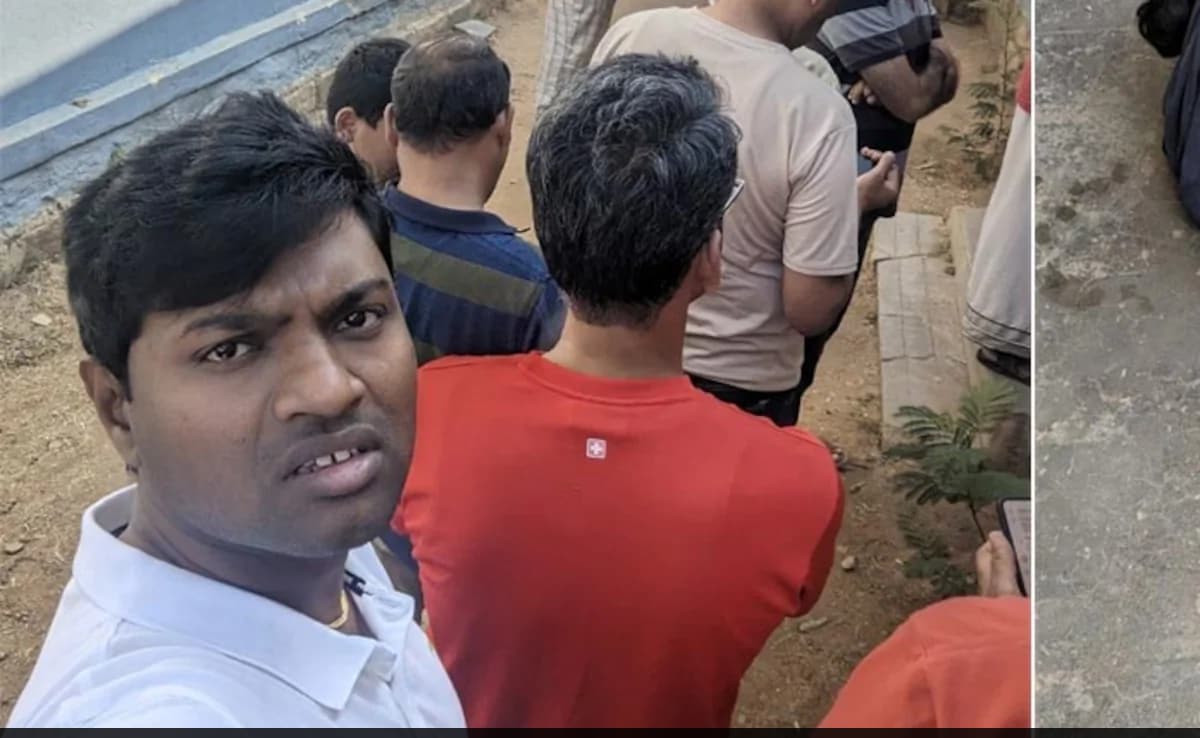
Pyongyang has shipped a large amount of weapons to Russia for use in Ukraine (file photo)
Seoul, Korea:
North Korea has been subject to a vast and complex web of U.N. sanctions for its banned nuclear and ballistic missile weapons programs for years, with violations carefully tracked and monitored by experts.
But experts say Russia used its veto to block much of the effort — not lifting sanctions but ending U.N. surveillance, a major victory for North Korea’s Kim Jong Un.
AFP takes a look at what we know:
what happened?
After North Korea tested a second nuclear weapon in 2009 and the United Nations imposed sanctions on Pyongyang, a team of experts was established with the support of Russia and China to monitor and report any sanctions violations.
The panel’s term expires at the end of April each year, and this year Russia blocked its renewal. Weeks ago, the panel said it was investigating reports of arms transfers between Moscow and Pyongyang.
Pyongyang has shipped large quantities of weapons to Russia for use in Ukraine, Seoul and Washington’s claims.
Hwang Jung-kook, Seoul’s ambassador to the United Nations, said Russia’s veto was “almost equivalent to destroying a CCTV to avoid being caught red-handed.”
Why did Russia vote veto?
Russia claims the agency failed to fulfill its responsibilities.
Vassily Nebenzia, Moscow’s ambassador to the United Nations, said the group’s “work has increasingly been reduced to a means of Western means” and accused it of “reprinting biased information”.
Moscow and Pyongyang have grown closer in recent years, especially since Russia came under Western sanctions for its invasion of Ukraine.
“Russia has expressed its opposition to the imposition of sanctions on the country through North Korea,” Hong Min, a senior analyst at South Korea’s Institute for National Unification, told AFP.
What about China?
Beijing, Pyongyang’s long-time most important ally, did not join Russia in the veto but abstained from the vote.
“Political solution is the only way,” Chinese Foreign Ministry spokesman Lin Jian said on Friday in explaining the abstention.
He said: “The current situation on the (North Korean) peninsula is still tense, and blindly imposing sanctions cannot solve the problem.”
China supports easing sanctions on North Korea and backed a Russian proposal ahead of the vote to introduce so-called sunset clauses on North Korea and reduce the frequency of expert panel reports.
But Leif-Eric Easley, a professor at Ewha University in Seoul, said that “to Beijing’s dismay, trilateral cooperation between Washington, Seoul and Tokyo may actually increase” as a result of the group’s disbandment, because Allies are seeking to confront Pyongyang.
Additionally, “more evidence of sanctions violations will likely be released to the public as Russia and China’s limiting influence on headlines will disappear with the disappearance of the U.N. panel,” he said.
What will change?
Experts say sanctions against North Korea are becoming increasingly ineffective, largely thanks to Russia and China.
As global competition intensified, starting around 2019, Moscow and Beijing began lobbying at the United Nations for the lifting of sanctions.
At the time, Russia “used North Korea as a bargaining chip to protest NATO’s eastward expansion in Europe and the U.S.’s military buildup in the Western Pacific,” said Hong of South Korea’s Institute for National Unification.
Former US President Donald Trump, who held a historic but ultimately failed meeting with North Korean leader Kim Jong Un, also made aggressive anti-Beijing rhetoric while in office.
Eric Penton-Voak, who served as the group’s coordinator last year, said the only significance of Thursday’s veto was that “Russia’s (and China’s) true position on the group and the broader sanctions regime is finally clear.” clear”.
“The only real surprise to those who are paying attention to this issue is that it didn’t happen earlier,” he told Seoul-based specialist website NK News.
Recently, Pyongyang has moved to take advantage of the impasse at the United Nations, ramping up missile testing and weapons development and declaring that it will become an “irreversible” nuclear power by 2022.
Yang Moo-jin, president of the University of North Korean Studies in Seoul, told AFP that “cooperation from China and Russia, which interact the most with North Korea, is crucial” if Washington wants to change this trajectory.
So what about Russia’s relationship with North Korea?
Kim Jong-un met with Russian President Vladimir Putin last September, and Pyongyang’s leader declared Moscow’s relations with North Korea “the number one priority.”
The two countries have since stepped up cooperation, with Seoul claiming earlier this month that North Korea had now shipped 7,000 containers of weapons to Russia in response to its war with Ukraine.
North Korea’s borders remain largely closed due to pandemic-era restrictions, but a group of Russian tourists visited Pyongyang last month, the first known foreign tour group since the start of the pandemic. The official Korean Central News Agency said Moscow’s spy chief visited the site this week.
Patrick Cronin, chairman of Asia-Pacific security at the Hudson Institute, told Yonhap News Agency that Russia’s veto marked a real victory for Kim Jong Un.
“Kim Jong Un’s courtship of the Kremlin has paid off. Pyongyang wants to end sanctions without slowing down its strategic weapons program,” he said.
(Except for the headline, this story has not been edited by NDTV staff and is published from a syndicated feed.)
Follow us on Google news ,Twitter , and Join Whatsapp Group of thelocalreport.in
















